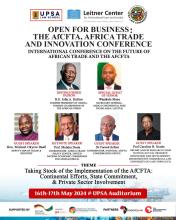Nigeria v P&ID and its Effect on UNCITRAL Model Law Arbitration
Justice Robin Knowles’ decision in the Nigeria v. P&ID case has received, rightly so, its fair share of international attention from arbitrators, scholars, legal practitioners and commentators alike. The decision has had a seismic effect, if not drawing significant attention, on the international arbitration landscape, for two reasons. Firstly, while the subject award is not the first to be set aside on account of fraud and/or breach of public policy of the seat of arbitration, such decisions are rare and far in between. One would have to go back years, if not decades, to find an award set aside on these grounds. Secondly, the decision has significantly redefined arbitration as we understand it, shaking it to the core, reigniting discussions on its viability and suitability, particularly in matters regarding investor-state disputes.

